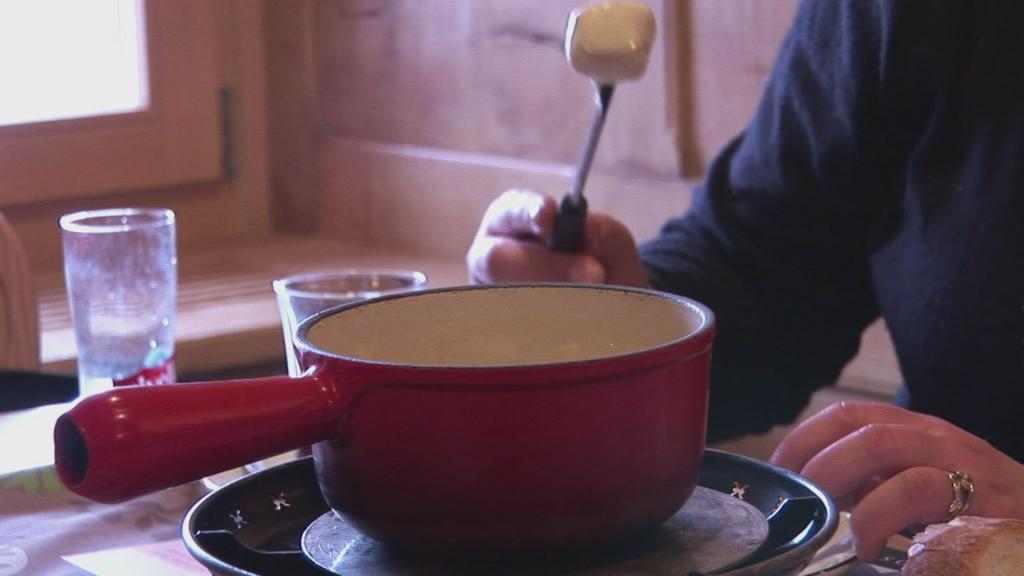Food industry roasts “Swissness” bill

The Swiss food industry has criticised a parliamentary proposal on so-called Swissness as being too severe and counterproductive.
The cabinet approved the legislative amendment in November, arguing it would strengthen the domestic protection of the designation of origin “Made in Switzerland” and the Swiss cross, as well as facilitate law enforcement abroad.
However, the food industry’s umbrella group, FIAL, said that the bill’s requirement that for a product to receive a “Swiss” label 80 per cent of its raw materials needed to come from Switzerland was excessive and unrealistic.
The amendment would punish Swiss companies that manufactured within Switzerland but used imported ingredients, it said.
“[Chocolate malt drink] Ovomaltine is considered a Swiss product all around the world, but it simply isn’t possible to have 80 per cent Swiss raw materials inside,” FIAL president Rolf Schweiger told swissinfo.ch in Bern on Monday.
“The biggest problem is that we have a lot of products in Switzerland which need raw materials from foreign countries for their good quality. For the [higher-end] products we need flexibility for our industry.”
Some brands of fondue mixtures for example could be in trouble, because the wine can’t be produced in Switzerland in the necessary quantities.
Monique Bourquin from Unilever Switzerland called the 80 per cent rule a “killer criterion” for many products of the traditional Swiss brand Knorr.
“Emotional products”
“Our biggest issue with the 80 per cent bill is that you only focus on one part of the product: the raw material,” Daniel Lutz, head of frozen products at Nestlé Switzerland, told swissinfo.ch.
“But all the rest that is very significant for Swiss culture and history – know-how, innovation, research and development, reliability – all these factors are completely excluded.”
In other words, Swissness is more than just the ingredients.
Lutz added that an 80 per cent level of self-sufficiency had never been reached – “even under government plans during the Second World War”.
FIAL, which represents 190 companies with a total turnover of more than SFr20 billion ($18.8 billion), agreed that raw material weight shouldn’t be the only criterion and demanded that manufacturing costs also be taken into consideration.
Schweiger, also a senator for the centre-right Radical Party, talked of “emotional products” such as cheese for which he could accept the proposed 80 per cent – “everyone expects Swiss cheese to be made with Swiss milk” – but for the more complicated products involving many ingredients he believed “another target would be better for everybody”.
For these products, 60 per cent was in his view a more sensible figure.
Half-baked?
“Utterly absurd” was how Oscar Kambly, president of 100-year-old biscuit producer Kambly, described the situation as he launched into a philosophical discussion of biscuitness.
For example, a biscuit is baked in Switzerland and its flour is ground in Switzerland. Some of the corn, however, comes from abroad as there is not enough in Switzerland. Is this a Swiss biscuit?
Sixty per cent of respondents to a representative Isopublic market research survey said yes.
“Consumers couldn’t care less where the raw material for Swiss chocolate has come from,” he said.
“Take the Basel Läckerli [a traditional hard spice biscuit made of honey, almonds, candied peel and Kirsch]. Do you really expect the flour to come from Basel?” he wondered.
For Kambly, the place of manufacture was more important than the origin of the ingredients. He believed that the proposal in its current form “would weaken the Swiss brand in relation to foreign competition”.
“It’s a real Swiss skill, shooting oneself in the foot,” he concluded.
Lutz added that products such as Le Parfait sandwich spread or Thomy mustard could no longer be sold as Swiss.
“Too much Swissness is killing Swissness,” he said.
Compromise
Franz Schmid, co-director of FIAL and head of chocolate umbrella group chocosuisse, told swissinfo.ch he could even imagine a Swiss product that had no Swiss ingredients.
Board member Beat Hodler said a Swiss compromise was needed.
“We have a Swiss food industry which for many, many years has worked as well with Swiss raw materials as with imported raw materials – and many products, like chocolate, made Switzerland famous although cocoa doesn’t grow in Switzerland,” he told swissinfo.ch.
“We need a solution that allows Swiss firms to continue to produce traditional Swiss products as they have done for years.”
Thomas Stephens, swissinfo.ch
Rising globalisation has resulted in some firms relocating production abroad or buying cheaper foreign raw materials that are then packed as Swiss goods.
Former Justice Minister Christoph Blocher launched the Swissness campaign in 2006, citing examples of cosmetics and saucepans claiming to be Swiss made despite being manufactured in Germany and China.
The use of “Swiss” and “Swiss made” is not clearly defined, with previous court rulings providing only loose guidelines. The government has only defined rules for the watch industry.
Under current legislation the Swiss cross may not be registered as a brand nor put on products that are sold commercially. Reality shows that there is frequent abuse of the present system, in particular because the “Switzerland” brand does not exist in the legal sense.
For both Swiss and foreign consumers, “Swissness” brings to mind “a healthy, well-ordered, efficient world”, according to a 2006 government report.
It also has connotations of “precision, meticulousness, reliability and thoroughness”.
“Swissness” is also a synonym for innovation, exclusive products and excellent services. It refers to a country that is “rich in various cultures, cosmopolitan and open to the world”.
In short, it is a term that is positive and can be used to promote business. Half of companies distributing Swiss products say add the “Swiss” label to their own brand.

In compliance with the JTI standards
More: SWI swissinfo.ch certified by the Journalism Trust Initiative













You can find an overview of ongoing debates with our journalists here . Please join us!
If you want to start a conversation about a topic raised in this article or want to report factual errors, email us at english@swissinfo.ch.